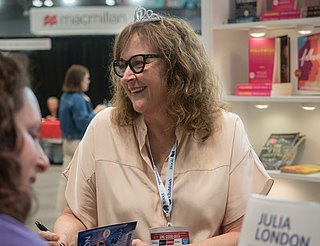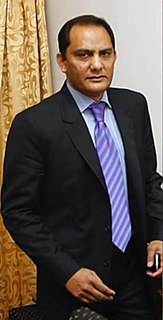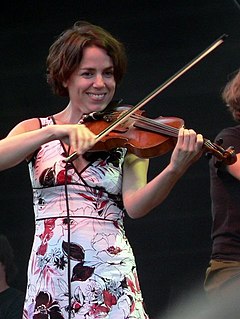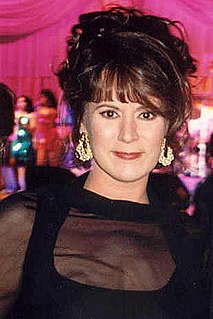A Quote by Karin Slaughter
The plot is very important because writers have to play fair with their readers, but no one would care about the plot if the character work wasn't there. So, basically every book I work on starts with me thinking not just about the bad thing that's going to happen, but how that bad thing is going to ripple through the community, the family of the victim, and the lives of the investigators. I am keenly aware when I'm working that the crimes I am writing about have happened to real people. I take that very seriously.
Quote Topics
Related Quotes
It's tempting to think, 'This is silly. I'm an artist. I care about my work, my work is first. I don't care about what kind of dress I wear... That's so secondary to me.' But if you care about your work... then you need to take this part of it just as seriously as you would going into an audition and going into work.
Usually, when you're talking about work with other writers it's because something seriously bad is going on with your work and you've absolutely thrown out a lifeline and you're hoping that someone will help you with something. Either there's some bad feeling you have about the work, or sometimes it's not specific - just kind of solidarity.
I don't care what the press is about a person that I'm working with. I care about how they come to work every day. I don't care who broke up with who or who is sleeping with who or who went out where. I don't care what you do with your personal life. It's when people take their personal lives into a space where it affects their performance at work, that's when I would stop taking someone seriously.
Usually I work out the plot before I start. This time I thought: Writers always talk about not knowing where a book is going - -I want to experience that, too. What I found out is that it's very interesting, but it takes much longer because you have so many false starts. You take wrong turns and you have to go back and start the whole chapter, or the whole section, from scratch.
When I'm writing, I'm thinking, "Well, this might be a book that I'll always be happy with, and certainly readers will be happy with." But another part of me knows that when I'm past the stage of writing, the book is gonna have good things about it, bad things about it - probably more bad than good. I just know that. That's who I am.
I find that I am much slower in the beginning of a book. I am thinking of the plot, of the characters and who they are, and where they are going. I often throw out a lot of the writing I start with, because the characters and plot improve as I write. Or perhaps I should say it is my hope they will improve as I write.
I get very tense working, so I often have to get up and wander around the house. It is very bad on my stomach. I have to be mad to be working well anyway, and then I am mad about the way things are going on the page in addition. My ulcer flourishes and I have to chew lots of pills. When my work is going well, I am usually sort of sick.
I feel fortunate that I've had a lot of songs recorded by other people, because I take my songwriting very seriously. It's only those people that have followed me over the years and really know my work that know how serious I am about all of it - including the way I look. You can't take my high heels from me, you can't have my long fingernails, you can't take all this hair from me, because it's part of this thing that I've become. I wouldn't want to give any of it up. Do I have to be ugly to be a songwriter? This is the way I am, and it's what I choose to be.
I think everyone is always asking themselves, How is my work meaningful, how is my life meaningful? As I get older, I feel like who I am as a person and a citizen is more important than who I am in my work. But I do think it reframed slightly for me, how much I have to care about a project in order to want to do it. Sometimes, obviously, you have a take a job for money. But I think I'm quicker now when I get a script that's, say, borderline misogynist, I'm not going to go in for it. I'm thinking more about what I'm putting into the world.
I got a new 4-track cassette recorder a year or so after high school. For a while I would just stare at it thinking, how am I going to do this if I don't play guitar or keyboards? How am I going to write and record a song if I don't know how to play any instruments? I mean, I played the violin, but I didn't know anything about how to work a 4-track.
There's that lovely thing for the first month or two of writing a new book: OK, I don't know what that character's going to do, but we'll find out later. After about three or four months you come to that bit where you've got to put some plot in before it's too late, and you have to go back and start inserting plot, and, ooh, I've left out the literature, OK, lets put some in.






































